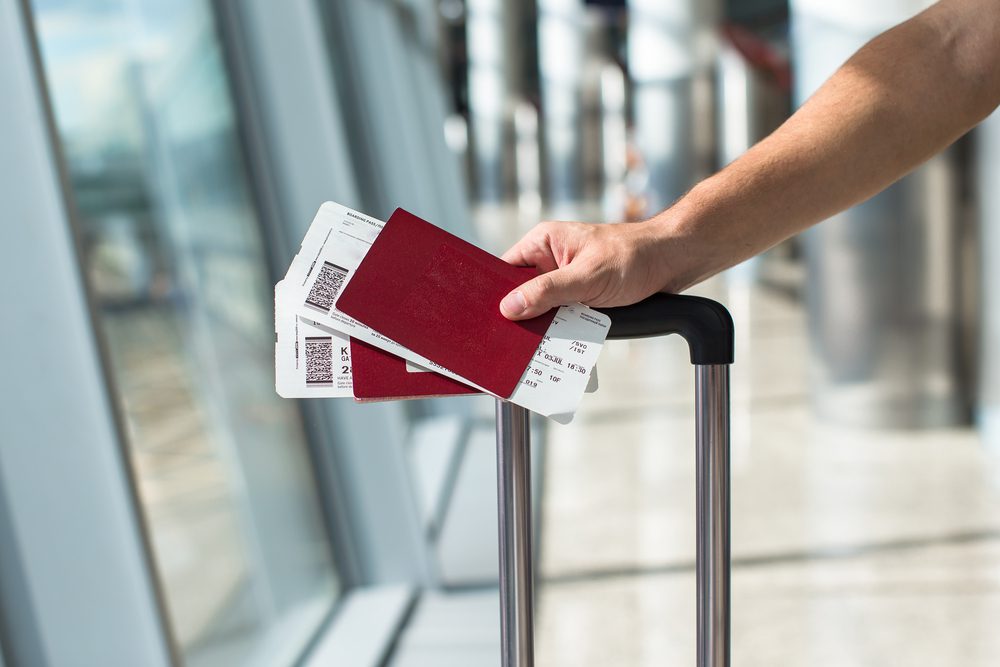With the constant evolution of the travel industry, countries’ immigration rules and regulations are changing faster than ever before. If you want to travel abroad without any hassles and stress, plan your trip and ensure you have the correct travel documents to enter another country. What are travel documents? Why do you need one? In this article, we will take a closer look at the following topics:

What is a travel document?
Why do you need travel documents?
Important travel documents for your international visit
What is a travel consent letter?
How to write a consent letter?
Without further ado, let’s delve into learning about critical documents for your international travel.
What is a travel document?
As the name suggests, a travel document is an identity document of an individual required to travel between different countries to clear border control measures. It is a legal means to travel abroad as it establishes the identity and nationality of the holder. It is issued by a government or international entity and is required during any international visit to ascertain your identity, nationality, and eligibility to enter a given jurisdiction.

The travel document is the key to unlocking the door of international travel; unless you have one, you won’t be able to gain access and cross another country’s border. Several types of travel documents permit individuals to clear border controls, like passports, visas, health documents, identity cards, permanent resident cards, etc.
Why do you need travel documents?
The need for travel documents is a part of any country’s border control policies because they contain all the needed information of an individual willing to enter, reside or travel within their territory. Proper identification forms the base of international travel, and the state authorities must identify every visitor to check and control their flow in and out of the country. Travel documents verify the bearer’s identity and allow immigration authorities to pull publicly available information about them, including personal details, family background, criminal records, etc.
With growing concerns like overpopulation, economics, terrorism, etc., all over the world, public authorities require travel documents to vet potential visitors and prevent illegal immigration and other criminal activities.
Important travel documents for your international visit
Different countries may impose varying travel document regulations and requirements based on your travel itinerary and personal situation. Amid changing travel rules scenarios, it is always useful to carry the following documents for any type of international trip:
Passport
A passport is the most common travel document issued by the national government to provide legal entry into another country and access consular assistance. It is the most important and reliable form of identification containing the holder’s personal information like name, date of birth, nationality, gender, passport number, place of issue, date of issue, passport number, date of expiry, etc. Holding a passport designates you as a bonafide dweller and a legal citizen of your particular country of origin. It is official and genuine since the government sets its conditions for issuing it.

A passport is the most crucial identification document for your international trip. How else will you convince the immigration authorities of Germany that you are a US citizen without showing them your passport?
When traveling cross-country, ensure your passport is valid for a minimum of six months beyond your plan to arrive at the destination. Most countries and airlines require a passport validity of at least six months from the planned departure date; confirm the passport validity requirements and the expiry date to avoid the frustrating situation at the airport.
Visa (Visitors Internationally Stay Allowance)
Although a passport is mandatory to enter a foreign country, it doesn’t entitle a traveler to enter any country other than the issuing country. In most cases, many countries require citizens of other nations to obtain a visa before arrival to permit them to enter, remain within, or leave their territory. A visa is an entry in a passport or other travel documents made by a polity, granting permission to the bearer to enter, transit, or remain in the country concerned.

Visa specifies limits on the duration of the foreigner’s stay, the period of validity, and the number of permitted visits during that period. Based on the type of visa, you may work, study, or travel within the foreign country’s territory. A visa doesn’t necessarily guarantee entry as it is subject to entry permission by an immigration official on arrival at the frontiers. If the entry requirements don’t match your profile, an immigrant officer has the right to reject your entry even though you hold a visa or have a visa exemption facility.
The requirement for a visa to a certain country depends on the bilateral agreement between the two countries. If you want to apply for a visa to your dream country, you must specify certain circumstances, like financial security, travel reasons, previous travel details, etc., in advance of arrival.
Health travel documents
Several countries require health travel documents concerning required vaccination procedures for international travelers. The vaccination regulations can help eradicate the spread of diseases from travelers to the country’s citizens and vice-versa. International certificates of vaccinations related to yellow fever, hepatitis, typhoid, diphtheria, etc., are required by limited countries where there are increased health risks for travelers. In the face of the unprecedented health crisis, many countries have enforced COVID-19 travel document entry requirements to curb the pandemic proliferation. You should take the health travel regulation as seriously as other important travel documents like visa and passport because the result of not having it is entry refusal.
Insurance proof
Emergency or accident cases can occur in unprecedented times. You must purchase insurance covering your medical expenses and trip cancellation and carry a copy of your travel insurance certificate. Overseas trips have never been easier, so keep your insurance plan ready to prepare for unforeseen situations.
National ID Card
National Identity Cards like your citizenship certificate, state-issued Enhanced Driver’s License, voter’s ID, etc., are not mandatory to travel internationally, but having these documents with you will be so helpful esp. if you lose your passport and need a travel document to return to the home country immediately.
Permanent resident cards
If you are a holder of a permanent residence card issued by the Department of Immigration of the country concerned, you will need that to clear the nation’s border controls. The American Green Card, issued to foreign citizens permitted to reside there indefinitely, is valid for international travel and required to lawfully enter the country. In the case of Singapore, the permanent residents need their national identity card, a valid electronic re-entry permit, and a passport from their home country to travel abroad.

Travel itinerary
You may need to show your itinerary details, such as flight tickets (return tickets too), accommodation reservations, car rental, etc., during check-in at the airport, esp. when you are traveling on a ‘Tourist Visa .’Keeping copies of your travel itinerary, helps to keep track of your travel plans and makes your trip go smoothly which starts from a seamless check-in experience at the airport.
What is a travel consent letter?
Traveling as an adult alone isn’t much of an issue. Still, there are specific requirements for minors who haven’t reached the legal age of majority to travel internationally without their parents or legal guardians. Suppose a child travels abroad alone, with only one parent/guardian, with another adult (such as relatives, friends, teacher, etc.), or in a group. In that case, he /she must carry a travel consent letter signed by parents to enter or leave a foreign country.
A travel consent letter, also known as child travel consent or parental consent form, is a document that gives a minor child permission to travel abroad without having his/her parents or guardians accompany him/her. Proof of parental consent demonstrates that the child can undertake cross-country trips without their parents or legal guardians and simplifies travel for children. Travel authorities such as an immigration officer or airline personnel may request a travel consent letter and restrict the child from continuing the journey in case of a lack of parental consent.

How to write a consent letter?
Parents can write a travel consent letter for their children by filling up details like the child’s name, birth date/place, passport details, parents’ name, custody information and their passport details, the contact information of non-traveling parents/guardians, destination details, travel dates, etc. The Child Travel Consent Form must be signed by every non-accompanying person (i.e., non-traveling parents) in front of a witness to validate it. (The witness should also sign the letter of consent).
The Minor Travel Consent Form is crucial to prevent instances of child abduction-esp. Custody issues and human trafficking. Depending on the country’s requirements, even a parent with sole custody may have to avail of Child Travel Consent.






